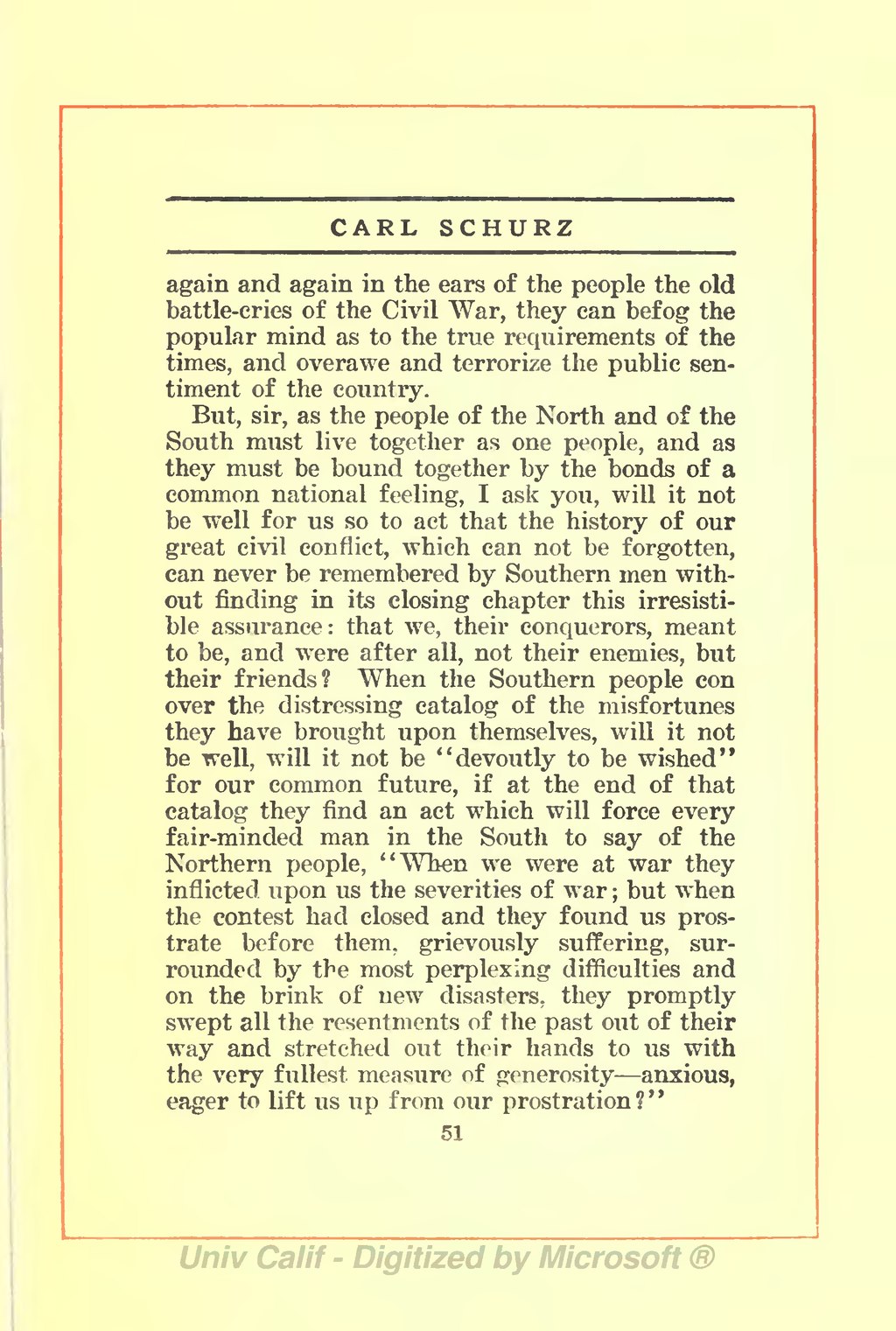CARL SCHURZ
again and again in the ears of the people the old battle-cries of the Civil War, they can befog the popular mind as to the true requirements of the times, and overawe and terrorize the public sentiment of the country.
But, sir, as the people of the North and of the South must live together as one people, and as they must be bound together by the bonds of a common national feeling, I ask you, will it not be well for us so to act that the history of our great civil conflict, which can not be forgotten, can never be remembered by Southern men without finding in its closing chapter this irresistible assurance: that we, their conquerors, meant to be, and were after all, not their enemies, but their friends? When the Southern people con over the distressing catalog of the misfortunes they have brought upon themselves, will it not be well, will it not be “devoutly to be wished” for our common future, if at the end of that catalog they find an act which will force every fair-minded man in the South to say of the Northern people, “When we were at war they inflicted upon us the severities of war; but when the contest had closed and they found us prostrate before them, grievously suffering, surrounded by the most perplexing difficulties and on the brink of new disasters, they promptly swept all the resentments of the past out of their way and stretched out their hands to us with the very fullest measure of generosity—anxious, eager to lift us up from our prostration?”
51
